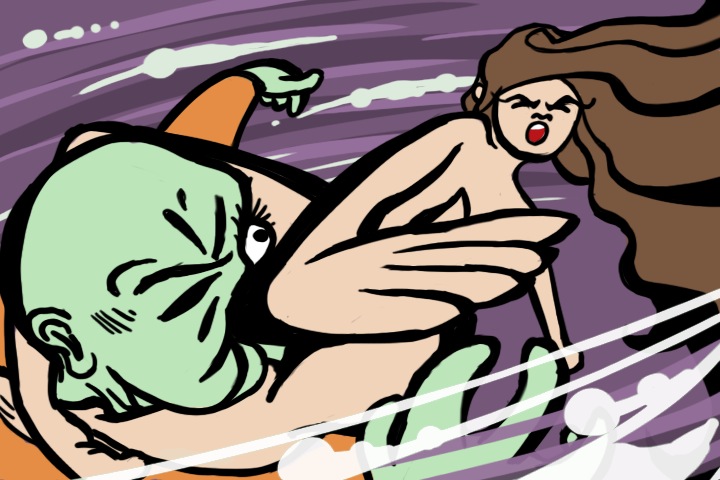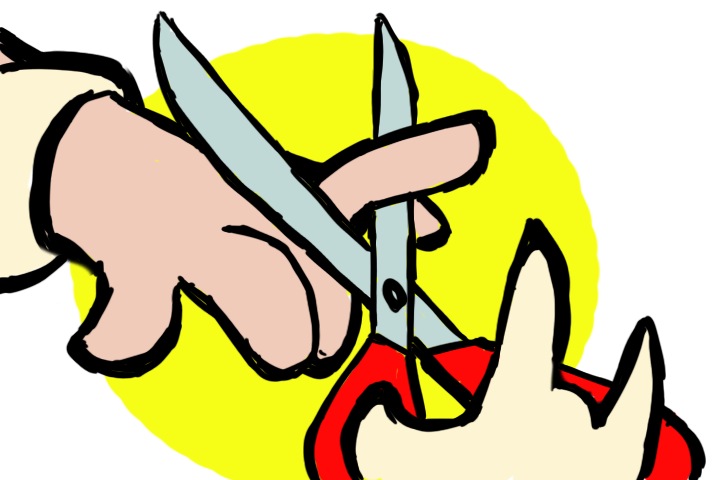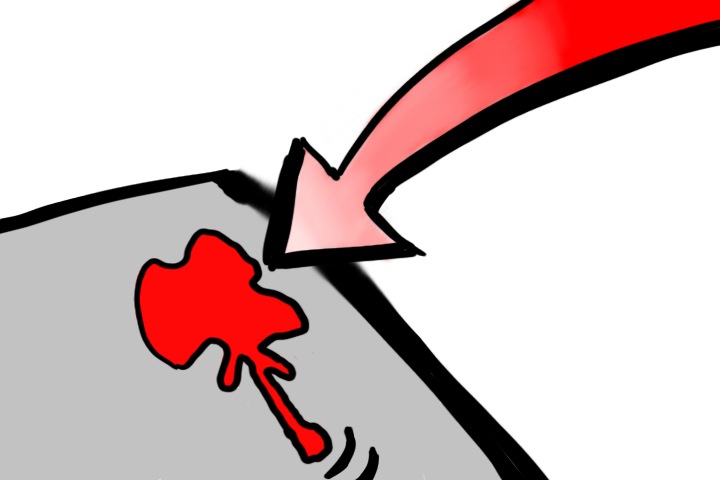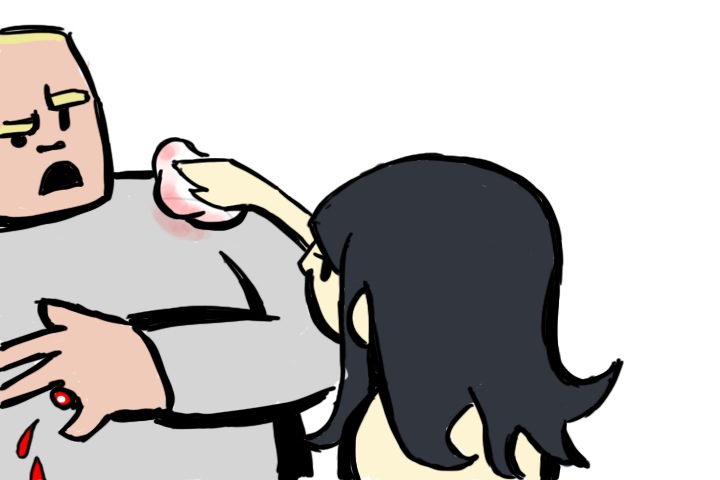I just spent another hour washing my clothes. I fill up the bathroom sink and a garbage bin with hot water and soak my work shirts before scrubbing at the colors with laundry bar soap. I always say I choose Taiwan because its first world but maybe I regret leaving Cambodia before I really got that self-made feeling. Anyway, manual labor is the key to life. The inhabitants of every Blue Zone, a region where people routinely live past 90, always do housework by themselves. During college I grew a grudge against the dishwashing machine. Now I think I'll do away with the laundry machine, too. I like the idea of scraping off and cleaning out what you wear and eat; it keeps everything in your hands. Laundromats and dishwashers are for people who would otherwise pay someone else to clean up after them. There have always been those people and I don't think we're any better by acting like them just because we can afford it.
Not that it's wrong, per se, to own and use household appliances. Rather it's what we're missing out on when we toss dirty things into a box and let an engine work in place of an arm. Maybe instead of a half hour of exercise and genuine purifying you sit and watch TV. Maybe you even read a book. But now you're distanced from the idea of cleanliness, just like a spoiled child who has his mother clean his room. I could also connect this to my general gripe about society's shift away from large interdependent extended families to small independent nuclear ones. That's another post.
Suffice it to say that housework is a secret balm for the lonely soul.
Profound Insights
It's easier to live life without having to look for new ways to digest beauty.
I just finished a great book, The Elegance of the Hedgehog by Muriel Barbery. The book is an evenly-spaced weave of two journals recording the same small drama of a high-class apartment building in Paris. Both protagonists, a 12-year old girl and a 54-year-old concierge, are exceptionally intelligent, culturally attuned and in pursuit of the authority to steer their own fate. It's a slow-moving story kept alive by the wit of its two narrators more than anything else and by the end I was beginning to feel just how well I fit into the novel's target audience. It's an audience most readers would want to be included in: smart, socially repressed bookworms.
Throughout, the journals play off each other in more than just theme and tone: Barbery meticulously builds up the solution to one protagonist's woes in the discoveries of the other. What this leads to is an agreement upon beauty in both Art and Choice. Beauty is consonance: as democratic a proposition as any other. The book draws heavily on Japan as a culture wholly aware of its own beauty. Sort of a feng shui thing in addition to a mystic sense of time. It's the kind of thing that some liberal is always trying to keep holy by setting it apart from both science and religion through deft application of literary rhetoric. I've done it my whole life, personally, but I've always thought of it as a hobby instead of a raison d'art. I recently read another French book and encountered the same level of devotion. In Camus's A Happy Death we are treated to a much more lyrical version of the same striving for artistic perfection as a means toward happiness. In both novels the hero dies soon after achieving this perfect state and we are therefore robbed of any notion that this might be a healthy lifestyle in the long term. Still, I'm anxious to discover a more complete defense of beauty.
For the time being I've found that, in my own life, the more time spent contemplating beauty the less likely I am to go out and find it. Whenever I forget the abstract, that's when I find it. The notion of keeping beauty as an idol, either actively pursuing it or keeping it locked away in a journal, has enticed me away from God a number of times.
I just finished a great book, The Elegance of the Hedgehog by Muriel Barbery. The book is an evenly-spaced weave of two journals recording the same small drama of a high-class apartment building in Paris. Both protagonists, a 12-year old girl and a 54-year-old concierge, are exceptionally intelligent, culturally attuned and in pursuit of the authority to steer their own fate. It's a slow-moving story kept alive by the wit of its two narrators more than anything else and by the end I was beginning to feel just how well I fit into the novel's target audience. It's an audience most readers would want to be included in: smart, socially repressed bookworms.
Throughout, the journals play off each other in more than just theme and tone: Barbery meticulously builds up the solution to one protagonist's woes in the discoveries of the other. What this leads to is an agreement upon beauty in both Art and Choice. Beauty is consonance: as democratic a proposition as any other. The book draws heavily on Japan as a culture wholly aware of its own beauty. Sort of a feng shui thing in addition to a mystic sense of time. It's the kind of thing that some liberal is always trying to keep holy by setting it apart from both science and religion through deft application of literary rhetoric. I've done it my whole life, personally, but I've always thought of it as a hobby instead of a raison d'art. I recently read another French book and encountered the same level of devotion. In Camus's A Happy Death we are treated to a much more lyrical version of the same striving for artistic perfection as a means toward happiness. In both novels the hero dies soon after achieving this perfect state and we are therefore robbed of any notion that this might be a healthy lifestyle in the long term. Still, I'm anxious to discover a more complete defense of beauty.
For the time being I've found that, in my own life, the more time spent contemplating beauty the less likely I am to go out and find it. Whenever I forget the abstract, that's when I find it. The notion of keeping beauty as an idol, either actively pursuing it or keeping it locked away in a journal, has enticed me away from God a number of times.
Subscribe to:
Comments (Atom)








